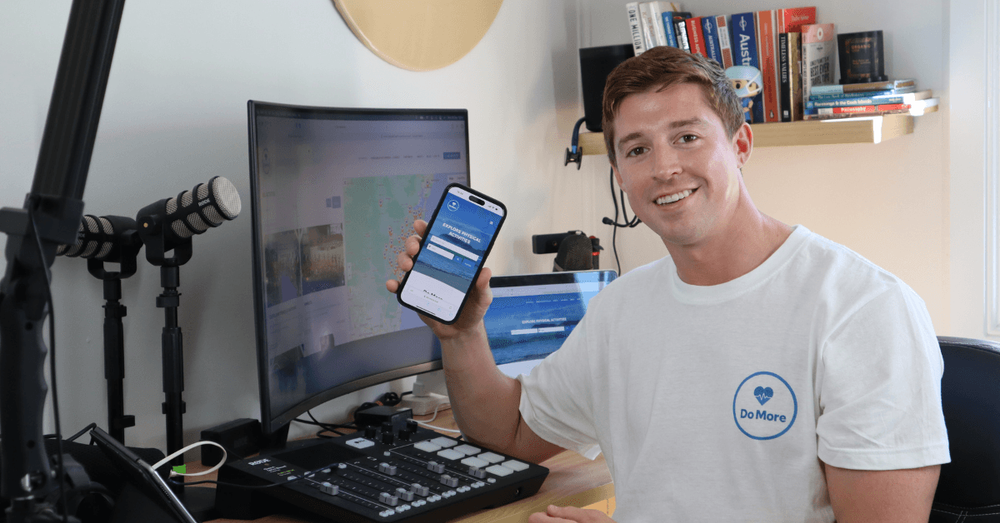Maintaining professionalism in the social media age: a guide for doctors

The rise of social media has transformed how professionals in every field communicate and interact with their clients and the public. For healthcare professionals, particularly doctors, this revolution has offered both immense opportunities and unique challenges. As much as social media platforms can be tools for sharing medical information, engaging patients, and building professional networks, they can also blur the boundaries of professionalism. This article serves as a guide for doctors on how to maintain professionalism in the social media age.
"I think social media has created a platform for patients (and prospective patients) to find more information out about health conditions. Unfortunately, this is often not well evidenced and due to the nature of social media, biases towards attention-grabbing information over accurate and honest information. Examples include influencers such as ’the liver king’ or ‘carnivoreMD', Dr Ash Bowden @doctordomore told Medrecruit.
Social media presents multifaceted benefits for doctors, opening avenues for growth, learning, and engagement that extend beyond the traditional confines of medicine.
It serves as a powerful tool for health education and advocacy. Doctors can share evidence-based medical information, debunk health misconceptions, and promote healthy behaviors, contributing to informed and healthier communities. It also allows them to stay abreast of the latest medical research and updates in their field, fostering continuous learning and professional development.
Dr Danielle Jones or @mamadoctorjones told Medworld "“A single post reaches more people than I would ever reach in my clinical career which is a huge opportunity and a big responsibility.”
Social media facilitates peer interaction and networking on a global scale. It enables healthcare professionals to connect, collaborate, and exchange knowledge, fostering a sense of global medical community. It also provides opportunities for mentorship and interdisciplinary learning.
It can enable patient engagement and communication, and offers an additional platform for doctors to interact with patients, answer queries, and provide advice within the boundaries of professional ethics. This improved access and communication can lead to better patient satisfaction and trust.
"I’ve found social media has created a platform for more anecdotes which, although not good for directing individual treatment, is very good at acknowledging and validating the feelings of people in similar situations. I personally share that I’ve had difficult times with mental health and that I see a psychologist and I’ve received very positive responses from followers grateful and empowering that I’m being open about it" Explained Ash.
Social media gives doctors a voice, allowing them to advocate for healthcare policies, patient rights, and the profession itself. By engaging responsibly and professionally, doctors can leverage the power of social media to positively influence healthcare outcomes.
"I think social media can help distribute information in bite-size format. This could be a good way to engage and improve health literacy (although the struggle is to differentiate credibility). I think social media can help give insights into lived experiences, surgeons can talk through different procedures, and patients can talk about the logistical, physical and emotional experiences they’ve had with different conditions and treatments." Ash told Medrecruit.
Understanding the Challenges
It's important to recognise the challenges that social media presents. Issues include concerns about patient privacy, inappropriate online behavior, difficulty maintaining a work-life balance, trolls, and misinformation. Understanding these challenges is the first step to tackling them and ensuring professional integrity is maintained.
Patient privacy:
Healthcare professionals have a legal and ethical responsibility to protect patient privacy. Any breach, intentional or unintentional, can have serious repercussions both legally and professionally.
Online behavior:
The anonymity and ease of communication that social media provides can sometimes lead to unprofessional online behavior. This can include sharing inappropriate content, online bullying, or disparaging remarks.
Work-life balance:
The line between personal and professional lives can often blur on social media. Maintaining a balance and keeping the two separate can be a challenge.
Misinformation:
Social media platforms can be breeding grounds for medical misinformation. Doctors have a role in correcting this, but it's often challenging to navigate these waters.
Many doctors have taken to Instagram for the sole purpose of debunking medical myths distributed by non-medical "influencers."
"The reality is that many people are inclined to make decisions based on things they see on social media. If the noise is loudest and most influential on these social media engines, then we health professionals need to make more effort to engage in these digital platforms to provide appropriate up to date evidence-based medicine, that is accessible to the online community
I recently started a social media page @ask.the.dr and have been using my page to bust a lot of misinformation, all while trying to improve health literacy in the community." Dr Mariam Chaalan told Medworld.
Strategies for maintaining professionalism
Understanding these challenges, here are some strategies that doctors can employ to maintain professionalism on social media:
Never disclose identifiable patient information without explicit consent, even in private conversations or groups.
Creating a professional social media presence:
Looking for a doctor job that matches your career and lifestyle aspirations?
Search jobsConsider creating separate professional and personal accounts. This can help establish boundaries between your work and personal life. Professional accounts can be used for sharing knowledge, engaging with patients and peers, and staying updated on the latest medical research and news.
Avoiding unprofessional conduct:
This includes being cautious about the tone and content of your posts. Be respectful, thoughtful, and avoid offensive or controversial topics. Remember that social media is a public platform and your behavior reflects on your profession.
Addressing misinformation:
Doctors can play a crucial role in addressing medical misinformation on social media. Share evidence-based information and correct misconceptions when you come across them, but do so in a respectful and non-confrontational way.
Regular training and updating:
Regularly updating your knowledge about the latest guidelines and recommendations related to social media use in the healthcare profession is essential. There are many resources, including courses and workshops, that can help in this area.
Reflect before you post:
Before posting anything, think about the potential implications. Is it patient-friendly? Could it be misconstrued? Does it violate any privacy or confidentiality rules? A moment of reflection can prevent potential problems.
Dr Ash Bowden (@doctordomore) is very active on social media. He uses his platform to eductae about the benefits of getting active from the trusted position as a doctor.
When deciding whether or not an Instagram account is trust worthy Ash says:
I’m sceptical of:
- Always and never language
- Sales pitches (good medicine isn’t ’sold’
- Medical inaccuracies (including terminology)
- False claims on profiles
- Lack of citations, references or vague language such as ’science shows us..’
I look for:
- Accurate language, including clarifying differences between correlation and causation
- Qualifications
- Acknowledging they could be wrong
- References
"My advice to doctors looking to use social media would be to have a really clear sense of ‘why’ they’re using the platform first of all. It can be really easy to slip into just documenting your daily life or trying to gain more ‘likes’ or followers. Establishing the motivation behind using the platform can help keep the content clear and aligned with your values. Clarifying and writing down your values will also help you say ‘no' when you’re asked to endorse things that go against them," explained Ash.
Once you've chosen your 'niche' or 'why' it is then important to consider the professional guidelines we have detailed above
"I’d advise doctors to be clear on AHPRA (or their relevant governing body’s) guidelines. It’s worth creating your own brand or social media guidelines too so that you can check the content that may feel contentious against it. With this in mind, I also recommend getting advice from others if you’re unsure of any content," Ash told Medrecruit.
"A big piece of advice would be to pace yourself, it’s very easy to feel as if you need to post every day due to notifications from social media platforms. The reality is that people will see your content when you share it but you have your work, life and wellness to maintain outside of this."
Social media, with all its challenges and opportunities, is here to stay. It is important that healthcare professionals, navigate this landscape thoughtfully and responsibly. By understanding the challenges and employing strategies to maintain professionalism, doctors can use social media as a tool for good - promoting health education, advocating for patients, and fostering professional connections, all while upholding the integrity of the medical profession.
